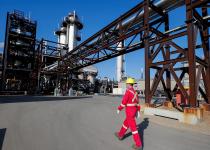While climate zealots continue to promote “green” energy as the only way to deal with decarbonizing modern life, many scientists, engineers, innovators and workers are quietly building carbon capture, use and storage solutions that prove those zealots wrong.

Opinion: Carbon capture and storage are key to a sustainable transition
Technology critical to the energy transition is not just about oil and gas
As discussion swirls around the objectives and potential impacts of the federal government’s plan for a “just transition,” it’s vitally important to emphasize that transforming Canada’s workforce for a net-zero economy cannot mean abandoning the country’s largest industrial sectors. Any such exercise needs to be focused on sustaining, not eliminating, jobs.

Renewables-only climate strategy is failing the world
…Solar and wind delivered just 9% of global electricity in 2020. Heating, transport and vital industrial processes account for much more energy use than electricity. This means solar and wind deliver just 1.8% of global energy supply.
Bjorn Lomborg, Copenhagen Consensus

California Power Problems Hit Texas
California transplants who moved to Texas no doubt thought they had escaped electric power outages. Think again. Texans this week were told to crank up their thermostats amid a brutal heat wave to avoid rolling blackouts. Some ultimatum: Swelter, or bake without power.

Rethinking fossil and nuclear energy
As a union with thousands of members working in the energy industry—and with thousands more whose jobs depend on reliable and affordable energy across other sectors—the Boilermakers are acutely aware of the uncertain future of fossil fuels and nuclear power.
Concerns about carbon emissions and nuclear accidents have driven many governments, NGOs and climate activists to urge abandoning fossil and nuclear power as rapidly as possible.

Capturing carbon is the future
We need to be realistic. We need to set smart and achievable targets. We need to have adult conversations. We need to discuss intelligently how we are going to meet Canada’s goal of reducing emissions by 40% come 2030.
The International Brotherhood of Boilermakers attended the COP26 climate conference in Glasgow, and came home with a strengthened mission and message on the environment:

A 100% green energy future risks a dark legacy for the planet
Much has been written about the disadvantages of wind and solar renewables in terms of their intermittency, their large footprint on land (and water), the extra costs to connect them to the energy grid, the requirement for duplicative back-up power sources, and other concerns. But as green energy advocates push to massively expand renewables across the globe, the potential for severe environmental and social harm comes more sharply into focus.







